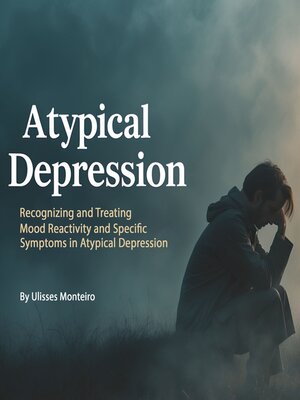Atypical Depression
audiobook (Unabridged) ∣ Recognizing and Treating Mood Reactivity and Specific Symptoms in Atypical Depression
By Ulisses Monteiro

Sign up to save your library
With an OverDrive account, you can save your favorite libraries for at-a-glance information about availability. Find out more about OverDrive accounts.
Find this title in Libby, the library reading app by OverDrive.



Search for a digital library with this title
Title found at these libraries:
| Library Name | Distance |
|---|---|
| Loading... |
This audiobook is narrated by a digital voice.
Depression affects millions of people worldwide, yet many cases go unrecognized because they don't fit the traditional picture most people have of this mental health condition. When we think of depression, we often imagine someone who is persistently sad, has lost interest in everything, struggles to get out of bed, and experiences insomnia. While this description captures major depressive disorder accurately for many people, it misses an important subset of individuals who experience what mental health professionals call atypical depression.
Atypical depression represents a significant portion of depressive episodes, affecting approximately fifteen to thirty percent of people diagnosed with depression. Despite its name suggesting something unusual or rare, atypical depression is actually quite common. The term "atypical" was coined decades ago when researchers first noticed that some people with depression didn't respond to the medications that worked for others, and their symptoms seemed to follow different patterns.
The most distinguishing feature of atypical depression is mood reactivity, which means that a person's mood can actually improve in response to positive events or experiences. This stands in stark contrast to typical depression, where even genuinely good things happening in someone's life fail to lift their spirits. Someone with atypical depression might feel genuinely happy when spending time with friends, receiving good news, or engaging in activities they enjoy, only to have their mood plummet again when the positive stimulus is removed or when they encounter stress or rejection.







